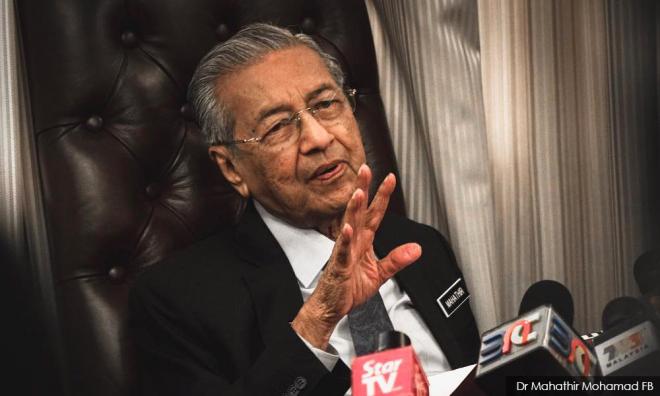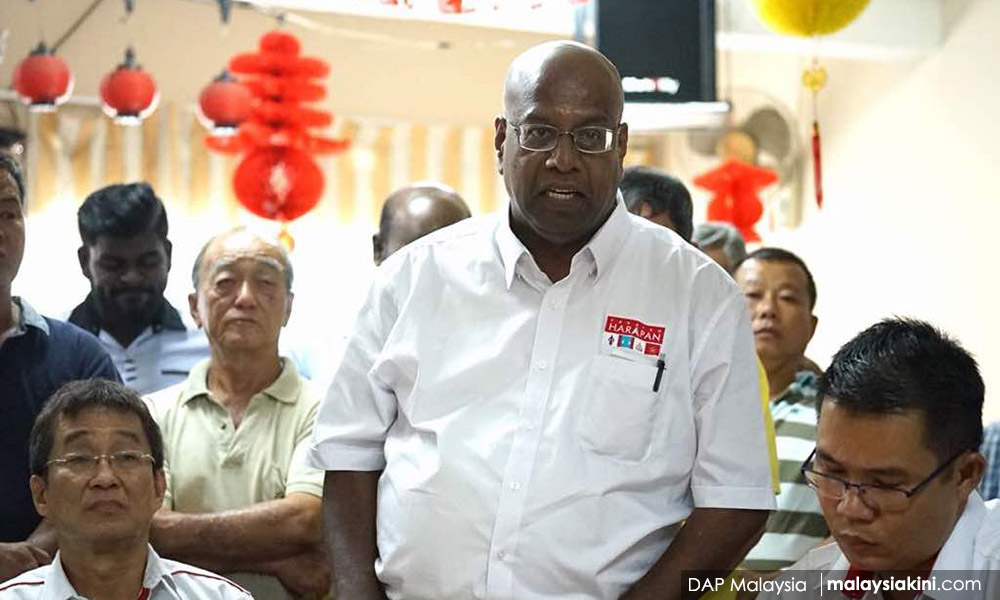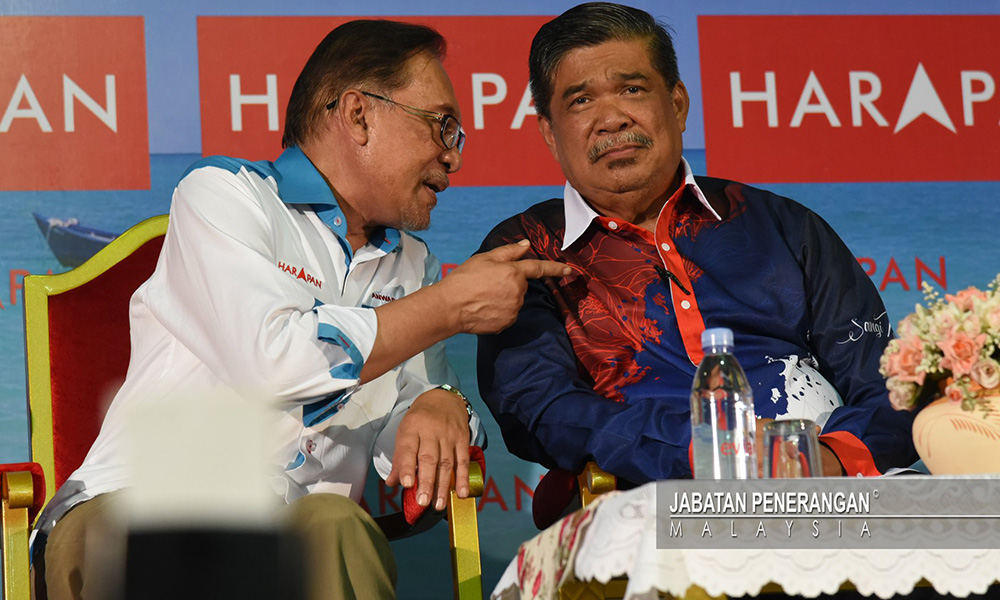
“Though this be madness, yet there is method in ‘t.”- Hamlet
From foreign policy initiatives that beguiled both friends and foes, to domestic policies that seem to have exacerbated the racial divide in Malaysia, former prime minister Dr Mahathir Mohamad seems to be at the centre of the current political disaster which has seen a legitimately-elected government overthrown.
Can a reversal of fortunes be expected for Pakatan Harapan come May 18 when Parliament convenes and a vote of no-confidence is mooted and passed on the new government of Prime Minister Muhyiddin Yassin?
Up until a week ago, it seemed possible that Harapan may have had the numbers to scuttle the newly-minted government and render it as the shortest-serving administration in Malaysia’s 63-year-old history.
Not anymore.
On Wednesday ousted former Harapan prime minister Mahathir declared that Muhyiddin’s government would survive till the next general election, cryptically admitting that his former coalition did not have the numbers or that he would throw his support behind the Perikatan Nasional (PN) government.
In an interview with Malay daily Sinar Harian, Mahathir said the Harapan coalition would not be able to mount a challenge to oust the PN government. This statement by the nonagenarian signalled the death knell to any quick comeback by Harapan.
But the dead giveaway in the whole fiasco is Mahathir’s statement that two heads of NGOs had privately told him that PKR leader Anwar Ibrahim was only good at politicking and was not a good administrator.
The facts and sequence of events that triggered last month’s collapse of the Harapan government are still being debated and sketchy.
But there were already some scepticism and doubts at the onset of the formation of Harapan (comprising PKR, DAP, Bersatu and Amanah) that the motley coalition would not last very long.
Boo Cheng Hau (below), the former Skudai assemblyperson, felt that Bersatu was not in tandem with the aspirations of the rest of its coalition partners.

Boo, who is currently a Johor DAP state committee member, said that “from its very inception, I had felt that Bersatu had imposed contradicting political values on Harapan which would cause a downfall later if not sooner.
“The actual liability for Harapan lies in Bersatu itself which inherits Malay supremacist political values from its predecessor Umno. Its political outlook and core values are contradictory to those of other major Harapan component parties, including DAP, PKR and Amanah. All these differences should have been foreseen as potentials for an eventual breakup,” he added.
Former Johor state exco, S Ramakrishnan said that the coalition members, apart from Bersatu, were unable to read Mahathir and the party’s refusal to hand over the reins to Anwar.
“Mahathir and Bersatu never supported Anwar as the next prime minister. DAP, Amanah and PKR wanted Mahathir to fulfil his election promises of handing over the reins.
“When Mahathir was cornered to announce a date, Azmin Ali of PKR and (Bersatu president) Muhyiddin Yassin took the opportunity to revolt. I think Mahathir had his game plan. The Malay institutions and royals, not sure of what his plans were, seized the opportunities and nominated Muhyiddin as the PM candidate.”
Ramakrishnan (below) said, “Muhyiddin and his supporters played the narrative that Harapan had more non-Malays than Malays in government. Of course, the Malays could not accept this untenable situation. And the Conference of Rulers accepted this and appointed Muhyiddin to head a Malay government. And the coup was successfully executed.”

Meanwhile, retired diplomat and political commentator M Santhananaban, agreed that the trigger point of the Harapan collapse was the Feb 20 presidential council meeting where Mahathir was asked to state clearly when he would hand over the reins to Anwar.
“Azmin, deputy president of the largest component part of Harapan, PKR, aided or unaided by his political cohorts, took it upon himself to explore and engage in initiatives to remove all prospects for Anwar to succeed Mahathir. It is clear Mahathir was, if not a party to Azmin’s initiatives, complicit in the end objective of denying Anwar the prime ministership,” said Santhananaban.
According to the veteran diplomat, Mahathir, Azmin and Muhyiddin, as well as Umno/PAS lawmakers “were agreed, unhappy and uneasy” about the presence of eight non-Malay ministers in the 26-member Harapan cabinet.
“Mahathir’s government had come to power following the 14th general election largely drawing on the urban electorate in Peninsular Malaysia and an ambitious manifesto. The urban areas had a significant number of Malay voters as well. The prevailing wisdom was that those Malay votes did not count for much.
“The bugbear for these Peninsular Malaysia lawmakers was Anwar who spoke of reform and reasonable and respectable non-Malay representation in the government.
“He led a mixed multiracial party himself which seemed to enjoy a good working relationship with the DAP, largely a non-Malay party with a winning presence in urban and semi-rural areas. To Anwar’s credit, he also had an excellent rapport with Amanah, an enlightened group of Malay lawmakers who did not subscribe or share the unreasonable distrust and suspicion of the DAP,” said Santhananaban.

Ramakrishnan, when asked if the fait acompli by PN could have been avoided, said it was unavoidable because Umno had made the DAP the bogeyman, “to instil fear among the Malays that non-Malays have taken over power. In the end, race and religious politics won the day.”
“You must remember, the attorney-general was a non-Malay and so was the finance minister. The law and the money were controlled by non-Malay individuals and this hit hard where it hurt,” added Ramakrishnan.
According to Boo, many of the DAP’s upper echelon failed to neutralise these criticisms and racial attacks against the party.
“Many of our own leaders have had a lack of foresight and narrative to counter the racial attacks from within the pact, that is Bersatu and the opponents, especially PAS and Umno. Like PAS in Pakatan Rakyat before, Bersatu had failed to accept the reality and even agreed with Umno and PAS that Malay supremacy was lost within Harapan despite Harapan's actual multicultural outlook,” said Boo.
According to Boo, he had foreseen the demise of Harapan but did not expect it to happen so fast and so soon.
“I did foresee this happening in one way or another but I did not anticipate that Harapan's demise would have arrived so early. I really thought it would last at least close to its one term in government right before next GE,” he added.
Santhanaban (below), on the other hand, said Mahathir’s cabinet was a disappointment in many respects.

“It engaged in too much polemics, it attempted to exorcise perceived threats from able apolitical appointees in well-functioning government commissions and companies and brought in a whole new team of inexperienced politically- affiliated people.
“Instead of governing and being seen to be governing, the cabinet led by Mahathir unleashed mudslinging locally and internationally. It had no relevance to good governance."
According to Santhanaban, one cabinet minister removed every Sabahan and Sarawakian from an agency.
“The people felt betrayed by that government. There was also too much unnecessary friendly fire which prevented the emergence of a clear, cohesive and commanding national narrative. Najib had done so well, in hindsight, as a communicator with half-truths,” he said.
But Mahathir continues to defy definition and critics. In his latest statement given to Sinar Harian, he has described the new cabinet of Muhyiddin as being too inclusive.
"The composition of the government is such that it looks like a government of Malays. But when we have the election, I don't think the Chinese will support it. Of course, the Indians will not support it,” he said as quoted by Malaysiakini.
After his ouster, with little or no chance of for yet another comeback, Mahathir seems to be coming to terms that Malaysia, after all, is still very much a multi-racial country.
His almost mad obsession in preventing Anwar from taking over the nation’s reins seems to be the main undoing of Harapan. The confrontation between Mahathir and members of the Harapan presidential council on Feb 21, was considered to be rude in Malay culture.
But this was the very excuse, lame as it may seem, the trigger point for the complete collapse of a legitimately-elected, multi-racial, multi-cultural party, which to some, was the final intended outcome of Harapan, envisaged at its inception.
But politics in Malaysia will never be the same again. No one party will ever emerge as dominant. The days of Umno controlling and calling the shots in BN has come to an end.
New political realities and alliances will, through necessity, be forged in the coming years.
Yes, there was method in this madness to bring down Harapan.
D ANANDA is a political observer and a former journalist. - Mkini


No comments:
Post a Comment
Note: Only a member of this blog may post a comment.